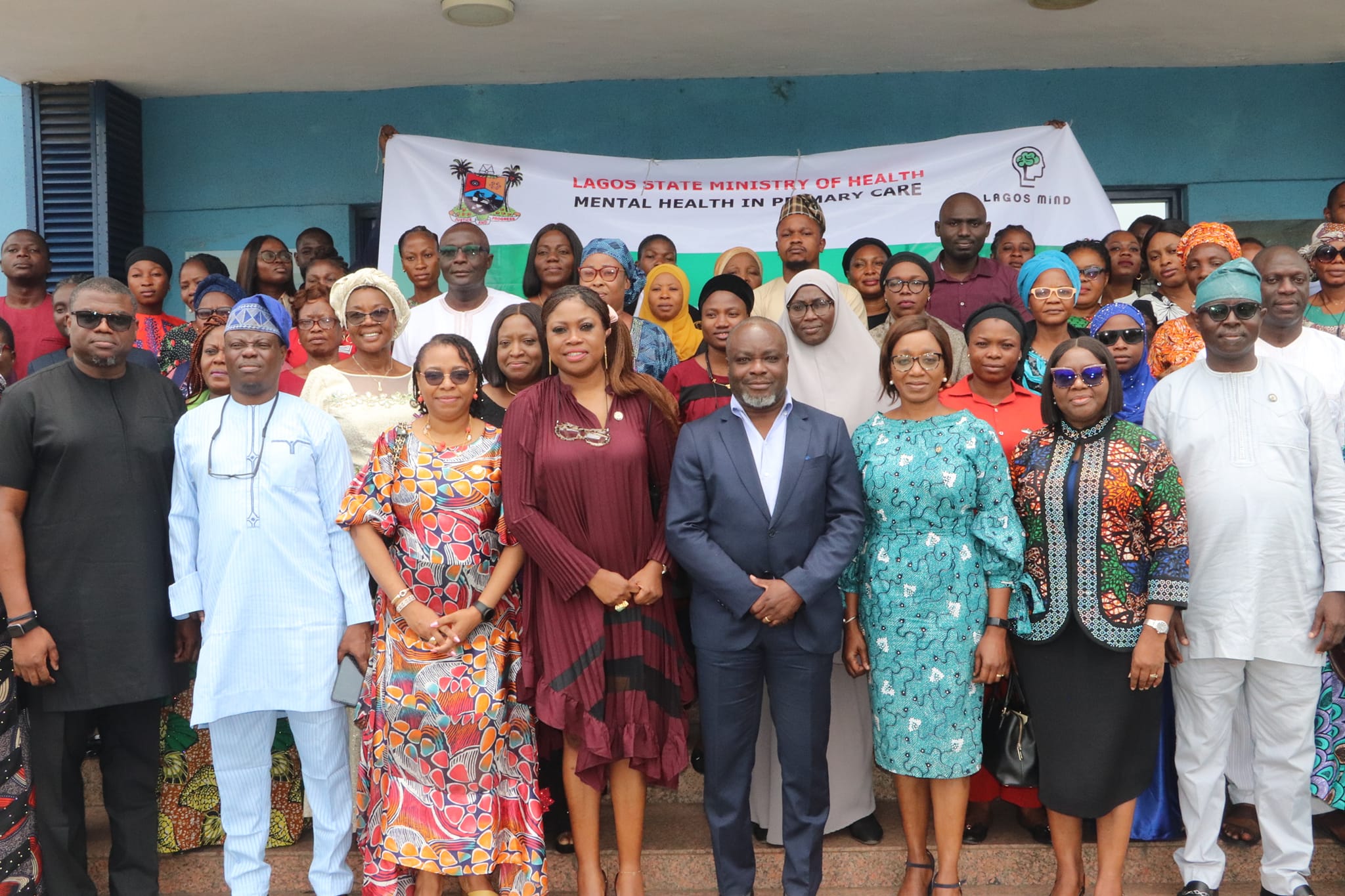Society
Lagos Trains 314 Primary Health Workers To Manage Common Mental Disorders
under the Mental Health in Primary Care (MeHPriC) project

No fewer than 314 primary health care staff including doctors, nurses, community health officers (CHOs), community health extension workers (CHEWs), and social workers drawn from primary health centers across Lagos State took part in a mental health capacity building training session organized by the Lagos State Ministry of Health for health workers at the Primary Health Care (PHC) level.
The participants were trained to recognize and manage common mental disorders like depression, anxiety, drug abuse, psychosis and stress as well as dealing with psychiatric emergencies like attempted self-harm and other forms of severe mental distress. The training modules also encompass the provision of guidelines on the care approach.
The training which was carried out under the Mental Health in Primary Care (MeHPriC) project of the Lagos State Government is geared towards integrating mental health services into the Lagos State Primary Health Care System as a transformative approach that addresses the holistic well-being of citizens.
Speaking today at the closing ceremony of the five days batched training exercise which held between Monday 4th and Friday 8th September, 2023, the Permanent Secretary, Lagos State Ministry, Dr. Olusegun Ogboye explained that the integration of mental health services in primary healthcare centres stands as a pivotal stride towards addressing the comprehensive healthcare needs of individuals.
He added that the approach acknowledges that physical and mental health are intertwined, stressing that providing holistic health care entails recognizing and addressing mental health concerns within the community setting.
“The mental health in primary care strategy aims to bridge the gap between the often-siloed fields of physical and mental health, fostering a collaborative environment that benefits patients’ overall wellbeing”, Ogboye said.
The Permanent Secretary stated that the benefits of the MeHPriC project encompass early identification of mental health concerns, timely intervention, improved patient outcomes, and reduced stigma surrounding mental health issues
He noted that the sustainability and expansion of integrated health services at the primary care level hold the potential to create profound impact on communities by offering accessible, effective, and empathetic care to all individuals.
“By embracing this approach, the Lagos State Health System can take a significant step towards promoting not only physical health but also mental well-being, ultimately contributing to healthier and more resilient societies, and achieving universal health coverage”, Ogboye said.
Addressing the trained health workers, the Permanent Secretary advised them to know their limitations and explore referral options while providing mental health care services in their facilities
He said: “The most important thing for any health professional and professional in any field is to know your limitations. So, this programme does not empower us to treat the whole spectrum of mental illness nor does it empower us to treat even the part of the spectrum that we have been empowered to treat, from start to end.
“There is a role that we have to play, and there is a point where we then pass the person off to the next level. What is important is that linkage and exchange is done in a way that does not add to the trauma of these patients.
“We also really need to open the conversation about the benefit packages that the Lagos Health Scheme has. I can’t recall here what it has for mental health or mental illness but I think it is something that if we are not going to pay lip service to this silent epidemic of mental illness, we need to have something in the benefit package for mental illness as well, it need to be a very strong part of health insurance”.
Speaking in the same vein, the Coordinator Special Project and Lagos State Ministry of Health Desk Officer, Dr. Tolu Ajomale explained that the mental health training for health workers at the primary health care level was fashioned along the World Health Organization Mental Health Gap Action Programme Intervention Guide (mhGAP-IG) with focus on identification and management of depression, anxiety, epilepsy and substance abuse.
He added that as part the training intervention delivery, participants are expected to appropriately identify and diagnose patients with depression, provide psychological intervention, prompt referral of severe cases to secondary and tertiary facilities, prescribe appropriate medication, identify medication side effects and appropriate remedies, provide psychoeducation and adherence support, and provide mental health talks and advice.
Ajomale who expressed delight at the level of knowledge gained by participants disclosed that the pre and post training knowledge assessment carried out on the participants is indicative that the knowledge gap on mental health has greatly been bridged.
“The next step for the MeHPriC project is the synchronized launch in primary health in the primary health care centres before the end of the year, followed by development of advocacy campaign plans, supervision and monitoring by mental health team and presentation of project evaluation to stakeholders,” he said.













